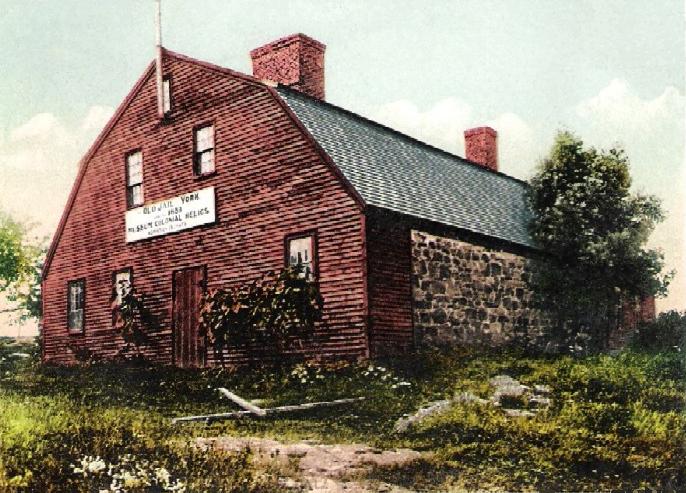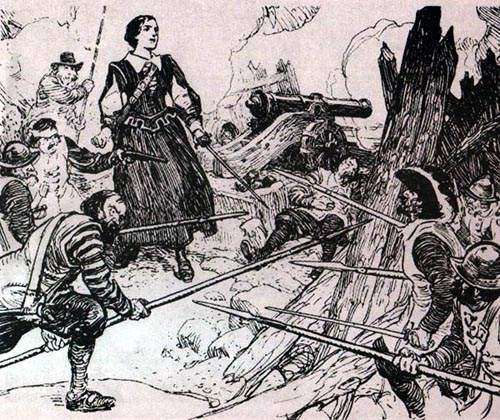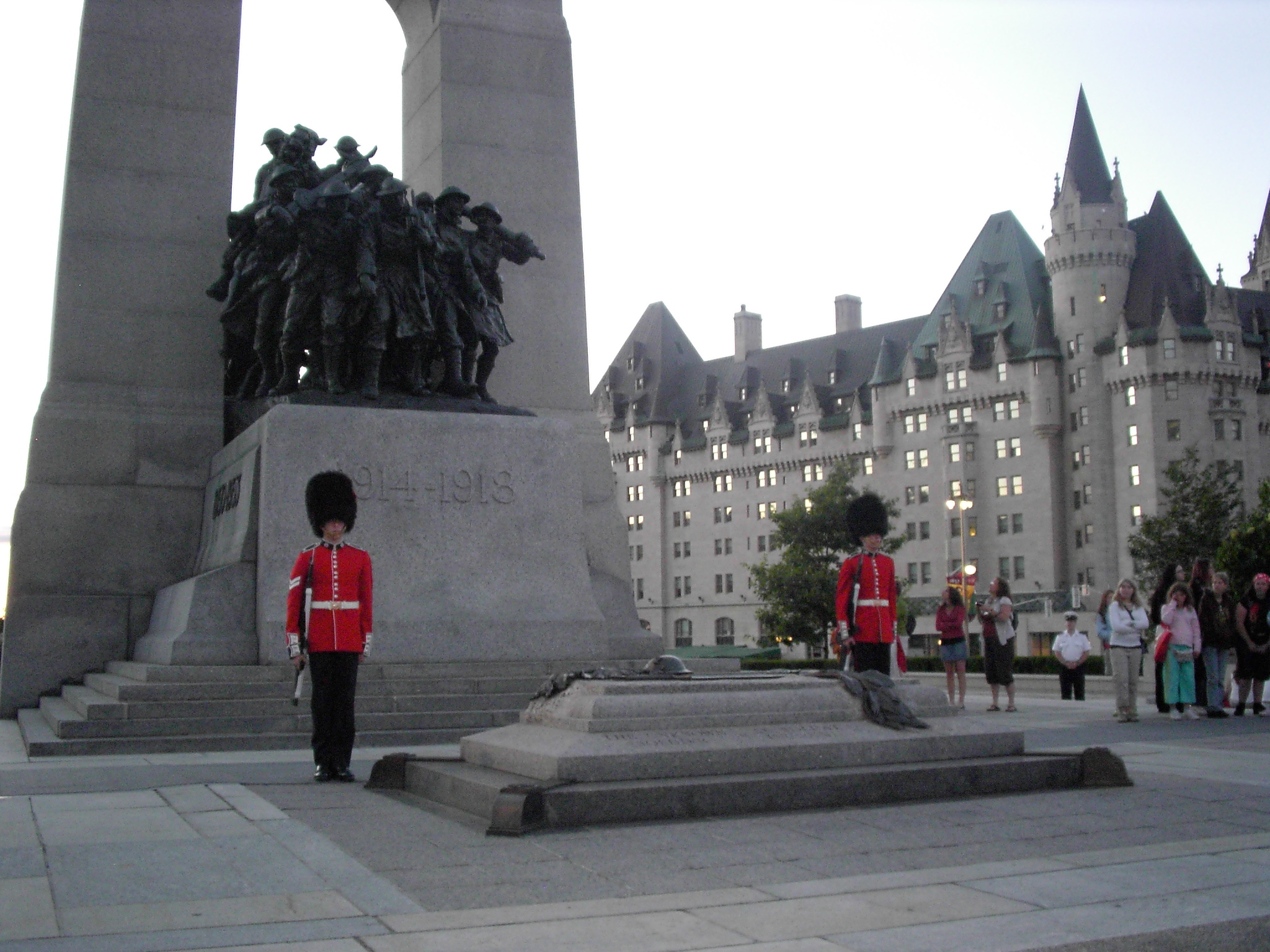|
Jeremiah Moulton
Jeremiah Moulton (b. York, Massachusetts (now in York, Maine), 1688, d. York, 20 July 1765) was a New England militia officer and member of the Massachusetts Council. As a boy, during King William's War, Moulton's parents were killed and he was taken captive in the Raid on York (1692) The Raid on York (also known as the Candlemas Massacre) took place on 24 January 1692 during King William's War, when Chief Madockawando and Father Louis-Pierre Thury led 200-300 natives into the town of York, Maine, York (then in the District o .... He is buried in the Old York Cemetery, York Village, York County, Maine, USA. References * Moulton Biographical Sketch.1842.* {{DEFAULTSORT:Moulton, Jeremiah People in Father Rale's War Military history of Acadia Military history of Nova Scotia Military history of New England Military history of Canada History of Maine Acadian history 1688 births 1765 deaths People from York, Maine Maine sheriffs American militia officers ... [...More Info...] [...Related Items...] OR: [Wikipedia] [Google] [Baidu] |
York, Maine
York is a town in York County, Maine, United States, near the southern tip of the state. The population in the 2020 census was 13,723. Situated beside the Atlantic Ocean on the Gulf of Maine, York is a well-known summer resort town. It is home to three 18-hole golf clubs, four sandy beaches, and Mount Agamenticus. It includes the villages of York Village, York Harbor, York Beach and Cape Neddick. York is part of the Portland– South Portland–Biddeford, Maine metropolitan statistical area. History First settled by Europeans in 1624, the plantation was originally called Agamenticus, the Abenaki term for the York River. In 1638, settlers changed the name to Bristol after Bristol, England, from which they had immigrated. Envisioning a great city arising from the wilderness, Sir Ferdinando Gorges, lord proprietor of Maine under the Plymouth patent, named the capital of his province Gorgeana. On March 1, 1642, by charter of King Charles I, Gorgeana became the first incorpora ... [...More Info...] [...Related Items...] OR: [Wikipedia] [Google] [Baidu] |
King William's War
King William's War (also known as the Second Indian War, Father Baudoin's War, Castin's War, or the First Intercolonial War in French) was the North American theater of the Nine Years' War (1688–1697), also known as the War of the Grand Alliance or the War of the League of Augsburg. It was the first of six colonial wars (see the four French and Indian Wars, Father Rale's War and Father Le Loutre's War) fought between New France and New England along with their respective Native allies before France ceded its remaining mainland territories in North America east of the Mississippi River in 1763. For King William's War, neither England nor France thought of weakening their position in Europe to support the war effort in North America. New France and the Wabanaki Confederacy were able to thwart New England expansion into Acadia, whose border New France defined as the Kennebec River in southern Maine. According to the terms of the 1697 Peace of Ryswick that ended the Nine Years' ... [...More Info...] [...Related Items...] OR: [Wikipedia] [Google] [Baidu] |
Raid On York (1692)
The Raid on York (also known as the Candlemas Massacre) took place on 24 January 1692 during King William's War, when Chief Madockawando and Father Louis-Pierre Thury led 200-300 natives into the town of York, Maine, York (then in the District of Maine and part of the Province of Massachusetts Bay, now in the U. S. state, state of Maine), killing about 100 of the English people, English settlers and burning down buildings, taking another estimated 80 villagers hostage. The villagers were forced to walk to Canada, New France, where they were ransomed by Capt. John Alden (sailor), John Alden Jr. of Boston, Massachusetts, Boston (son of John Alden and Priscilla Mullins of the Plymouth Colony). One of those taken captive was a young Jeremiah Moulton, who would later gain notoriety during the Father Rale's War. Capt. Floyd wrote that "the houses are all burned and rifled except the half dozen or thereabout"...later in the same letter he adds: "there is about seventeen or eighteen hous ... [...More Info...] [...Related Items...] OR: [Wikipedia] [Google] [Baidu] |
Old York Cemetery
Old or OLD may refer to: Places *Old, Baranya, Hungary *Old, Northamptonshire, England *Old Street station, a railway and tube station in London (station code OLD) *OLD, IATA code for Old Town Municipal Airport and Seaplane Base, Old Town, Maine, United States People *Old (surname) Music *OLD (band), a grindcore/industrial metal group * ''Old'' (Danny Brown album), a 2013 album by Danny Brown * ''Old'' (Starflyer 59 album), a 2003 album by Starflyer 59 * "Old" (song), a 1995 song by Machine Head *''Old LP'', a 2019 album by That Dog Other uses * ''Old'' (film), a 2021 American thriller film *''Oxford Latin Dictionary'' *Online dating *Over-Locknut Distance (or Dimension), a measurement of a bicycle wheel and frame *Old age See also *List of people known as the Old * * *Olde, a list of people with the surname *Olds (other) Olds may refer to: People * The olds, a jocular and irreverent online nickname for older adults * Bert Olds (1891–1953), Australian rules ... [...More Info...] [...Related Items...] OR: [Wikipedia] [Google] [Baidu] |
People In Father Rale's War
A person ( : people) is a being that has certain capacities or attributes such as reason, morality, consciousness or self-consciousness, and being a part of a culturally established form of social relations such as kinship, ownership of property, or legal responsibility. The defining features of personhood and, consequently, what makes a person count as a person, differ widely among cultures and contexts. In addition to the question of personhood, of what makes a being count as a person to begin with, there are further questions about personal identity and self: both about what makes any particular person that particular person instead of another, and about what makes a person at one time the same person as they were or will be at another time despite any intervening changes. The plural form "people" is often used to refer to an entire nation or ethnic group (as in "a people"), and this was the original meaning of the word; it subsequently acquired its use as a plural form of per ... [...More Info...] [...Related Items...] OR: [Wikipedia] [Google] [Baidu] |
Military History Of Acadia
A military, also known collectively as armed forces, is a heavily armed, highly organized force primarily intended for warfare. It is typically authorized and maintained by a sovereign state, with its members identifiable by their distinct military uniform. It may consist of one or more military branches such as an army, navy, air force, space force, marines, or coast guard. The main task of the military is usually defined as defence of the state and its interests against external armed threats. In broad usage, the terms ''armed forces'' and ''military'' are often treated as synonymous, although in technical usage a distinction is sometimes made in which a country's armed forces may include both its military and other paramilitary forces. There are various forms of irregular military forces, not belonging to a recognized state; though they share many attributes with regular military forces, they are less often referred to as simply ''military''. A nation's military ma ... [...More Info...] [...Related Items...] OR: [Wikipedia] [Google] [Baidu] |
Military History Of Nova Scotia
Nova Scotia (also known as Mi'kma'ki and Acadia) is a Canadian province located in Canada's Maritimes. The region was initially occupied by Mi'kmaq. The colonial history of Nova Scotia includes the present-day Canadian Maritime provinces and the northern part of Maine ( Sunbury County, Nova Scotia), all of which were at one time part of Nova Scotia. In 1763 Cape Breton Island and St. John's Island (now Prince Edward Island) became part of Nova Scotia. In 1769, St. John's Island became a separate colony. Nova Scotia included present-day New Brunswick until that province was established in 1784. (In 1765, the county of Sunbury was created, and included the territory of present-day New Brunswick and eastern Maine as far as the Penobscot River.) During the first 150 years of European settlement, the colony was primarily made up of Catholic Acadians, Maliseet and Mi'kmaq. During the latter seventy-five years of this time period, there were six colonial wars that took place in Nova Sc ... [...More Info...] [...Related Items...] OR: [Wikipedia] [Google] [Baidu] |
Military History Of New England
A military, also known collectively as armed forces, is a heavily armed, highly organized force primarily intended for warfare. It is typically authorized and maintained by a sovereign state, with its members identifiable by their distinct military uniform. It may consist of one or more military branches such as an army, navy, air force, space force, marines, or coast guard. The main task of the military is usually defined as defence of the state and its interests against external armed threats. In broad usage, the terms ''armed forces'' and ''military'' are often treated as synonymous, although in technical usage a distinction is sometimes made in which a country's armed forces may include both its military and other paramilitary forces. There are various forms of irregular military forces, not belonging to a recognized state; though they share many attributes with regular military forces, they are less often referred to as simply ''military''. A nation's military may f ... [...More Info...] [...Related Items...] OR: [Wikipedia] [Google] [Baidu] |
Military History Of Canada
The military history of Canada comprises hundreds of years of armed actions in the territory encompassing modern Canada, and interventions by the Canadian Forces, Canadian military in conflicts and peacekeeping worldwide. For thousands of years, the area that would become Canada was the site of sporadic intertribal conflicts among Aboriginal peoples in Canada, Aboriginal peoples. Beginning in the 17th and 18th centuries, Canada was the site of French and Indian Wars, four colonial wars and two additional wars in Nova Scotia and Acadia between New France and New England; the conflicts spanned almost seventy years, as each allied with various First Nation groups. In 1763, after the final colonial war—the Seven Years' War—the British emerged victorious and the French civilians, whom the British hoped to assimilate, were declared "British Subjects". After the passing of the Quebec Act in 1774, giving the Canadians, Canadians their first charter of rights under the new regime, the B ... [...More Info...] [...Related Items...] OR: [Wikipedia] [Google] [Baidu] |
History Of Maine
The history of the area comprising the U.S. state of Maine spans thousands of years, measured from the earliest human settlement, or approximately two hundred, measured from the advent of U.S. statehood in 1820. The present article will concentrate on the period of European contact and after. The origin of the name ''Maine'' is unclear. One theory is it was named after the French province of Maine. Another is that it derives from a practical nautical term, "the main" or "Main Land", "Meyne" or "Mainland", which served to distinguish the bulk of the state from its numerous islands. Etymology There is no definitive explanation for the origin of the name "Maine", but the most likely is that early explorers named it after the former province of Maine in France. Whatever the origin, the name was fixed for English settlers in 1665 when the English King's Commissioners ordered that the "Province of Maine" be entered from then on in official records. The state legislature in 2001 adopted a ... [...More Info...] [...Related Items...] OR: [Wikipedia] [Google] [Baidu] |
Acadian History
The Acadians (french: Acadiens , ) are an ethnic group descended from the French who settled in the New France colony of Acadia during the 17th and 18th centuries. Most Acadians live in the region of Acadia, as it is the region where the descendants of a few Acadians who escaped the Expulsion of the Acadians (aka The Great Upheaval / ''Le Grand Dérangement'') re-settled. Most Acadians in Canada continue to live in majority French-speaking communities, notably those in New Brunswick where Acadians and Francophones are granted autonomy in areas such as education and health. Acadia was one of the 5 regions of New France. Acadia was located in what is now Eastern Canada's Maritime provinces, as well as parts of Quebec and present-day Maine to the Kennebec River. It was ethnically, geographically and administratively different from the other French colonies and the French colony of Canada (modern-day Quebec). As a result, the Acadians developed a distinct history and culture. T ... [...More Info...] [...Related Items...] OR: [Wikipedia] [Google] [Baidu] |


_1938.jpg)




